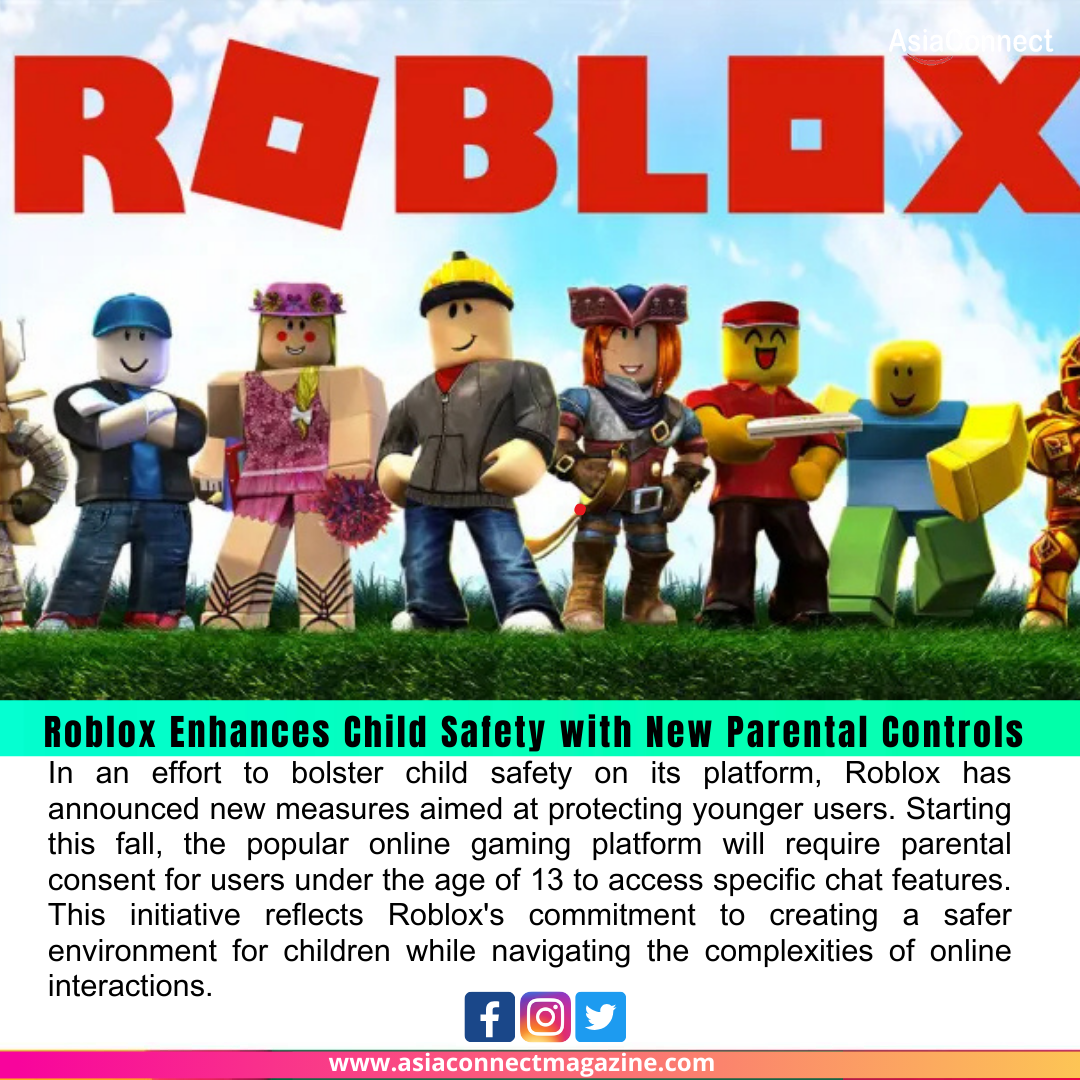In an effort to bolster child safety on its platform, Roblox has announced new measures aimed at protecting younger users. Starting this fall, the popular online gaming platform will require parental consent for users under the age of 13 to access specific chat features. This initiative reflects Roblox’s commitment to creating a safer environment for children while navigating the complexities of online interactions.
Roblox has become a virtual playground for millions of children around the world, offering a diverse range of games and experiences. However, with the growing popularity of online gaming, concerns about child safety have also intensified. By implementing stricter controls, Roblox aims to address these concerns while empowering parents to take an active role in their children’s online experiences.
The new parental consent requirement focuses on certain chat features that allow users to communicate with others in real-time. These features are integral to the social aspect of Roblox, enabling players to connect, collaborate, and share experiences. However, they also present risks, particularly for younger users who may be vulnerable to inappropriate content or interactions. By requiring parental consent, Roblox ensures that parents are involved in decisions regarding their children’s online interactions, fostering a more secure environment.
In addition to parental consent, Roblox is enhancing its existing safety features. The platform already employs a variety of tools designed to filter out inappropriate language and content. However, with the new measures in place, parents will have greater control over their children’s communication settings. This empowers families to customize the online experience based on their unique values and comfort levels.
The importance of parental involvement in children’s online activities cannot be overstated. By requiring consent for certain chat features, Roblox encourages parents to engage with their children’s gaming experiences. This not only enhances safety but also opens up opportunities for parents to discuss online behavior, digital citizenship, and the importance of reporting any concerning interactions.
Roblox has also emphasized the role of education in promoting online safety. The company is committed to providing resources and guidance to help parents understand the platform’s features and the potential risks associated with online gaming. This includes tips on how to talk to children about online interactions, as well as information on how to use the platform’s safety features effectively.
As the digital landscape continues to evolve, the need for robust safety measures becomes increasingly apparent. By implementing these new parental controls, Roblox is taking proactive steps to ensure that its platform remains a safe space for children to explore their creativity and connect with friends. The balance between providing a fun and engaging gaming environment while prioritizing safety is essential, and Roblox’s latest measures reflect this commitment.
Furthermore, Roblox’s initiative aligns with broader industry trends focused on child safety in digital environments. Many tech companies are recognizing the importance of establishing safeguards to protect younger audiences. By leading the way in implementing these measures, Roblox sets a positive example for other platforms in the gaming and social media sectors.
In conclusion, Roblox’s new parental consent requirement for chat features is a significant step toward enhancing child safety on the platform. By fostering parental involvement and reinforcing existing safety measures, Roblox is not only protecting its youngest users but also encouraging healthy online habits. As the platform continues to grow, these initiatives will be crucial in ensuring that Roblox remains a safe and enjoyable space for children to play, learn, and connect with others





